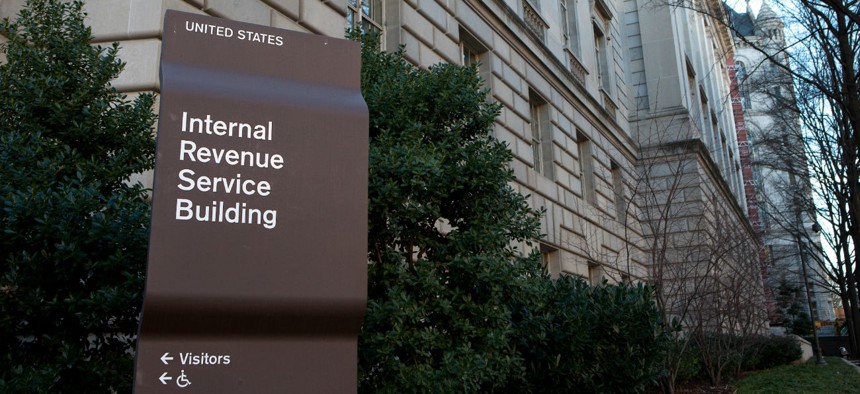
By Mark Van Scyoc / Shutterstock.com
Senators Look to Identify Tax Delinquent Feds
IRS hasn't compiled such a list in years, but previously used one to prioritize debt collection.
A pair of senators is looking for a list of all federal employees who are delinquent on their taxes, and has introduced a bill calling on the Treasury Department to compile such a database.
The Federal Employees and Retirees with Delinquent Tax Debt Initiative Act (S. 3184) would not require individual employees to be named in the database; instead, it would list the number of workers behind on their obligations at each agency and the amount of money owed. The Internal Revenue Service created a similar report in 1993, but has published it infrequently. As of the last publication in 2015, about 4% of civilian feds maintained outstanding tax debts.
Sens. Mike Braun, R-Ind., and Joni Ernst, R-Iowa, are looking to codify the report and ensure it is made available to the public on an annual basis. The list would include both current and retired civilian and military employees.
In the latest report, about 112,000 current federal employees were behind on their tax bills with an average debt of about $10,000. Federal employee advocates have repeatedly noted the delinquency rate in the civil service is far lower than national estimates of around 9%. The federal workforce list compiled by the IRS has not historically included employees participating in a payment plan.
Republican lawmakers have for years pushed to require agencies to fire their delinquent employees, but those efforts have been unsuccessful. Only the IRS itself is required to dismiss its own workers behind on their taxes. Other failed legislative efforts have focused on prohibiting agencies from hiring or paying bonuses to delinquent individuals.
In 2013, President Obama signed into law a reform that allows the IRS to tap into federal employees’ Thrift Savings Plans to collect outstanding tax debts. The agency must go through a number of steps before dipping into a federal employee’s retirement account. TSP’s governing board then has the full account at its disposal to pay debts owed to the tax agency. The levy must be paid in a one-time sum and cannot come from an account that is not yet vested.
IRS uses its report on federal employee delinquencies to identify individuals to route to its Automated Collection System for top priority. If the system is able to connect with the employees, IRS staff will discuss the debt with them to set up a payment or payment plan. The agency can also issue levies on financial assets and liens on properties.







